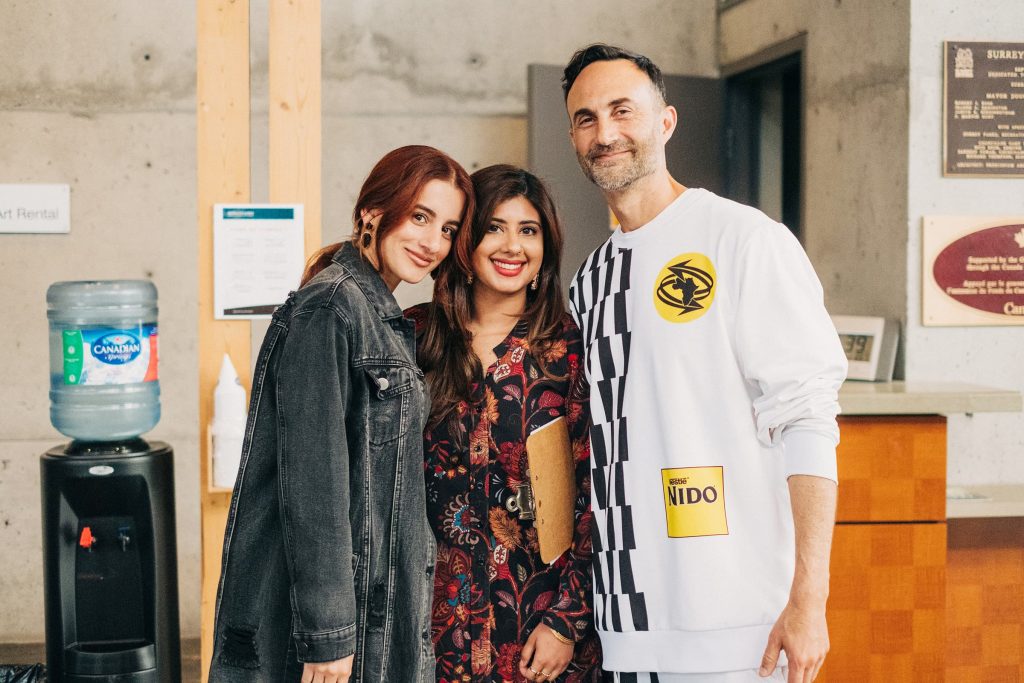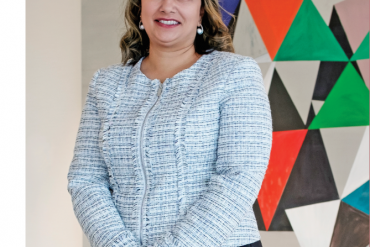A visionary and cultural producer, Harpo was born in Surrey to parents from Panjab who migrated to Canada in the early 1990s. She is proud to give meaning to what it means to be South Asian in the Lower Mainland. She is the Executive Director of VIBC, a charity serving young, hybrid South Asians in Metro Vancouver that hosts 5X Fest annually. This experience drives much of her work and feeds her passion for the third space, bicultural, hybrid identities she occupies. She has gotten to this leadership position by constantly remaining open and curious, saying yes to opportunities that pushed her out of her comfort zone, and believing in herself. She also had a lot of teachers, guides, friends, and loved ones who saw things in her that she could not see herself.
“One of my biggest inspirations as a young girl in Surrey was Barinder Rasode,” Harpo says. “She held a public position in the community as the first South Asian woman elected to the City of Surrey in 2008. Though I didn’t understand the significance of her role then, seeing her so authentic and unapologetic inspired me. I needed a real-life heroine of a bold woman, and she was it. Becoming friends with her as an adult was indeed special.”
Harpo feels she is in the most vulnerable part of her career. Becoming the Executive Director of North America’s largest South Asian youth organization at 27 is an incredibly courageous space to hold. “I remember seeing the coverage of my promotion in the Vancouver Sun and reading: Harpo Mander became one of the youngest artistic directors of a major music event in Canada, and it immediately caused me pride and fear, as the arts and culture admin space still does not look like me—a young South Asian. I’m navigating a predominantly white-occupied space that is only now starting to open up for people like me. It is an incredibly vulnerable space to navigate.”

What has given her confidence along the way is her relationship with her mentor Anoop Gill, who is the Executive Director of Qmunity, BC’s Queer, Trans & Two-Spirit Resource Centre. She also became the Executive Director of a major organization as a young Panjabi woman. Having her coach Harpo through executive leadership has been tremendous in her journey.
“Mentorship is life-changing,” Harpo elaborates. “You can’t become what you can’t see. I’m a mentor and a mentee, and when I mentor young, brown women, I’m mostly looking for women who are curious about expansion, growth, and impact—but need someone to see in them what they can’t see yet. Leaning in when things get uncomfortable, complex, or hard—is a crucial part of being a leader. I choose to lead with love. I hope to always meet my team with an open heart and love, especially when that feels tougher.”
Harpo jokes that there is no work-life balance, just work-life integration. “My work is sacred and tied to my greater purpose and vision. I want to make a meaningful impact with my work, so I must be well. I prioritize filling my life with things that allow me to show up as the best version of myself at work. Nurturing myself and caring for myself becomes much more intentional when I see it that way.”
Her advice to the younger generation of women is to get clear about the kind of world they want to build for themselves and others: “Ask yourself what values inform and drive that world, and then find people who want to build the same world as you. This takes trial and error and will likely involve many heartaches and mistakes. Still, if you lead with your values and the vision of the world you want to build as your litmus test, you’ll never fail.”
As we celebrate Mother’s Day and think about how we appreciate our mothers, Harpo holds a space in her heart for the woman who became her mother. “I often think about who that woman was before she became Harpo’s mom,” she says. “What were her dreams? Who did she want to be? Now that I’m in a leadership position navigating unchartered territory, I have much more respect for the young woman who became my mother and was also navigating unchartered territory. And with all the privileges I’ve been afforded, I often think about how to honor the young woman who became my mother.”



